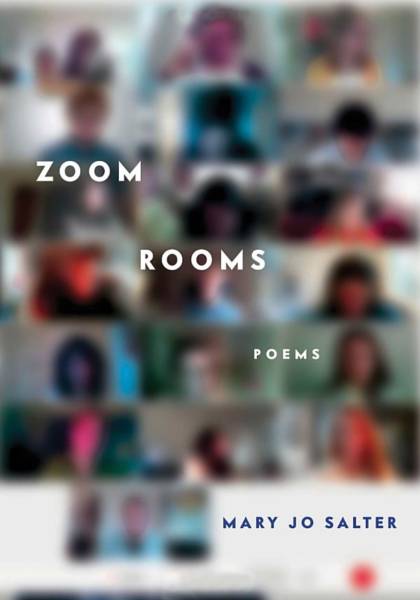Johns Hopkins writing Professor Mary Jo Salter's powerful new collection, Zoom Rooms, authored both before and during the pandemic, includes musings on the latest technology, a love letter to her granddaughter, and reminiscences of her parents. Johns Hopkins Magazine talked to Salter—over Zoom, of course—about her thematic preoccupations and pandemic life.

Is there a common thread unifying these poems?
One is cultural change and generational change. I am much more aware of what the next generation will be facing, partly as a mother, partly as a new grandmother, and partly because of the changes wrought by the pandemic, [including] the pervasiveness of technology in our lives. Many of us who had never done anything like Zoom suddenly find ourselves teaching students in a completely new way. There is a sense that the world is changing faster than you can keep up. I also find it harder and harder to imagine the future.
There's a strong sense in the book of the passage of time, aging, and mortality.
I had not realized until I reread the book for the millionth time how many times the word "grief" comes up. The poems are definitely about mortality and grieving at the same time that they're about trying to bring a little bit of lightness to life—for example, the poem "Hat Day," which is about not being young anymore but feeling happy to see the past. Gratitude seems to be an important theme for me.
To what extent did the pandemic shape your poetry?
Quite a bit. In [the title poem] "Zoom Rooms," I asked the question, "Have we all gotten so used to being quietly at home that we're almost afraid to interact with each other again?" It may be that this is our new life for the foreseeable future. That is a really profound change.
What else shifted for you?
I felt very grateful that I was one of the least affected people on the planet. I have a job that can be conducted from home. My husband works at home. We both think we got COVID early on because we were in northern Italy in January 2020 and came back sick, and he lost his sense of taste and smell. The real burden was not being able to see my two daughters.
Any pandemic discoveries?
I had never been in a book club because whenever anybody had invited me, I [always] said, "My life is a book club! That's all I do." But two high school friends and I decided that we would read a book together and Zoom about it every month. We're meeting on Sunday to discuss Jonathan Franzen's new novel [Crossroads].
Where did you get the idea for the poem "Island Dreams," with its confrontation between two shipwrecked literary characters?
Robinson Crusoe has obsessed me for years. The Tempest is one of my favorite plays. I had this image of Robinson Crusoe finding Friday's footprint in the sand and I thought, "What if that footprint belonged to Prospero?" I think in an indirect way the poem is about the pandemic. It's about two characters, one of whom—Prospero—very much wants to be left alone, and Crusoe, who's dying for company. That's very often how poetry works: You think you know why you're writing it, and you don't realize you're working out your own dispute about loneliness versus happy solitude. JMK








